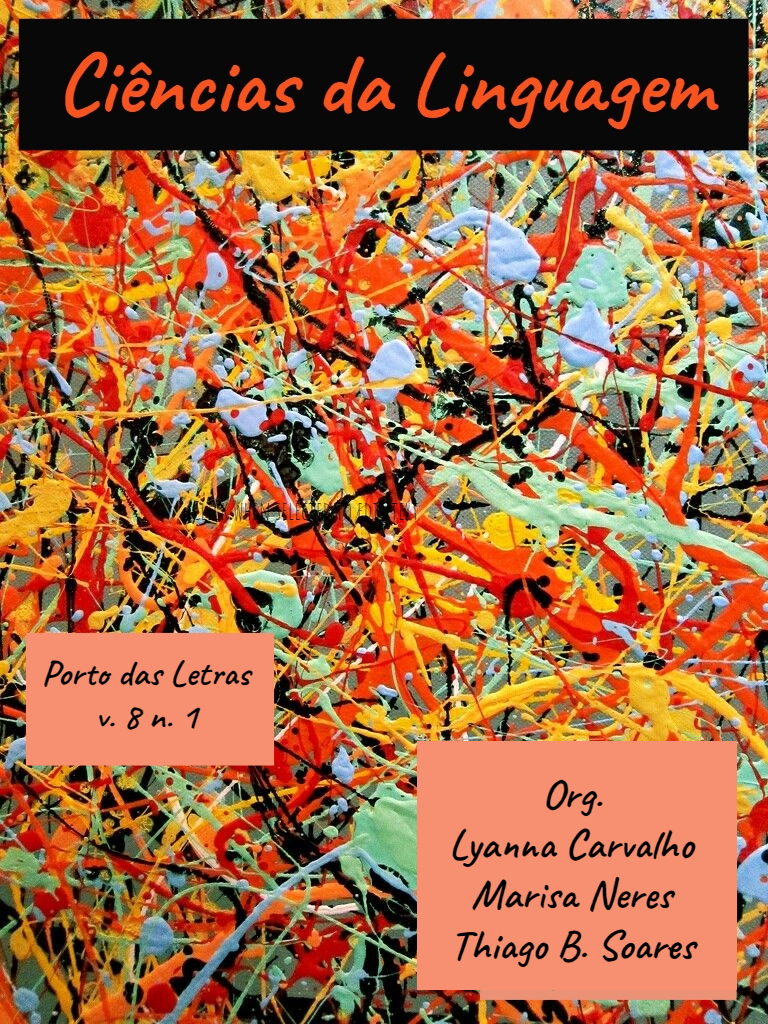Argumentação como instrumento de (trans)formação social
o pensamento crítico para construção da (cons)ciência
Resumo
Esse artigo tem como objetivo suscitar reflexões, a partir de projeções de (trans)formação social pautadas na argumentação, para promoção da construção da (cons)ciência dos sujeitos. Esse objetivo responde à questão geradora que busca investigar: “de que modo a (tras)formação social é viabilizada por meio da argumentação em favor da construção da (cons)ciência?”. Para isso, recorre-se à fundamentação teórica com base em Mazzali (2009), Fiorin (2014) e Quast (2016) que abordam as concepções de retórica, discurso e argumentação, Liberali e Fuga (2012), Liberali (2013), Guzzo e Lima (2018) no que se refere ao desenvolvimento do pensamento crítico. Além da ancoragem nas concepções do Marxismo e Bakhtiniana de linguagem. Justifica-se na percepção de que o desenvolvimento do pensamento crítico criativo-colaborativo é uma importante possibilidade para superação de discursos de poder, promoção de participação social e reconhecimento de que o processo argumentativo pode ser um instrumento adequado quando aliado a essa concepção. Quanto à natureza metodológica, é de caráter qualitativo e tem como intenção a produção de uma revisão de literatura sobre o tema proposto, cujo contexto se formou a partir das aulas do curso de (nome do curso) da (nome de Universidade), na disciplina “(nome da disciplina)”. Como resultado se espera contribuir com as discussões acerca da (trans)formação social, a partir da argumentação, para desenvolvimento da (cons)ciência dos indivíduos e que possa favorecer, também, as práticas relacionadas à construção do pensamento crítico e de valorização das vozes sociais para superação de verdades absolutas e dos discursos de poder.
Referências
BALDI, Luiz. A. P. de. A categoria ideologia em Marx e a questão da falsa consciência. R. Katál, Florianópolis, v. 22, n. 3, p. 631-640, set./dez. 2019. Disponível em: https://www.scielo.br/j/rk/a/wVGTjr8gbDLb8fNGgWBJcSB/?lang=pt. Acesso em: jun. 2021.
FIORIN, José. L. Argumentação e discurso. Bakhtiniana, n. 9, p. 53-70, jan./jul. 2014.
GUZZO, Guilherme. B.; LIMA, Valderez. M. R. O desenvolvimento do pensamento crítico na educação: uma meta possível? Educação Unisinos, v. 22, n. 4, dez. 2018. Disponível em: http://www.revistas.unisinos.br/index.php/educacao/article/view/edu.2018.224.11/60746614. Acesso em: jun. 2021.
LIBERALI, F. Argumentação em contexto escolar. São Paulo: Pontes Editores, 2013.
LIBERALI, Fernanda. C.; FUGA, Valdite. P. Argumentação e formação/gestão de educadores no quadro da Teoria da Atividade Sócio-Histórico-Cultural. Revista do Programa de Pós-Graduação em Letras da Universidade de Passo Fundo, v. 8, n. 2, p. 131-151, jul./dez. 2012. Disponível em: http://seer.upf.br/index.php/rd/article/view/2919/1986. Acesso em: jun. 2021.
MAZZALI, Gisele. C. Retórica: de Aristóteles a Perelman. Direito e Democracia, v. 10, n. 1, p. 29-40, jan./jun. 2009. Disponível em: https://revistaeletronicardfd.unibrasil.com.br/index.php/rdfd/article/view/158/155. Acesso em: jun. 2021.
PERELMAN, Chaïm. Lógica Jurídica. São Paulo: Martins Fontes, 2000.
PERELMAN, Chaïm.; OLBRECHTS-TYTECA, Lucie. Tratado da Argumentação. São Paulo: Martins Fontes, 2002.
PIRES, Marília. F. C. de. O materialismo histórico-dialético e a educação. Interface, v. 1, n. 1, p. 83-94, 1997. Disponível em: https://www.scielo.br/j/icse/a/RCh4LmpxDzXrLk6wfR4dmSD/?lang=pt. Acesso em: jun. 2021.
QUAST, K. A natureza dialógica e argumentativa do discurso interior revelada em interações em sala de aula de língua inglesa. Letras de Hoje, Porto Alegre, v. 51, n. 1, p. 136-146, jan./mar. 2016. Disponível em: https://revistaseletronicas.pucrs.br/index.php/fale/article/view/21705/14347. Acesso em: jun. 2021.
Downloads
Publicado
Como Citar
Edição
Seção
Licença
Os autores concordam com os termos da Declaração de Direito Autoral, que se aplicará a esta submissão caso seja publicada nesta revista (comentários ao editor podem ser incluídos a seguir).

